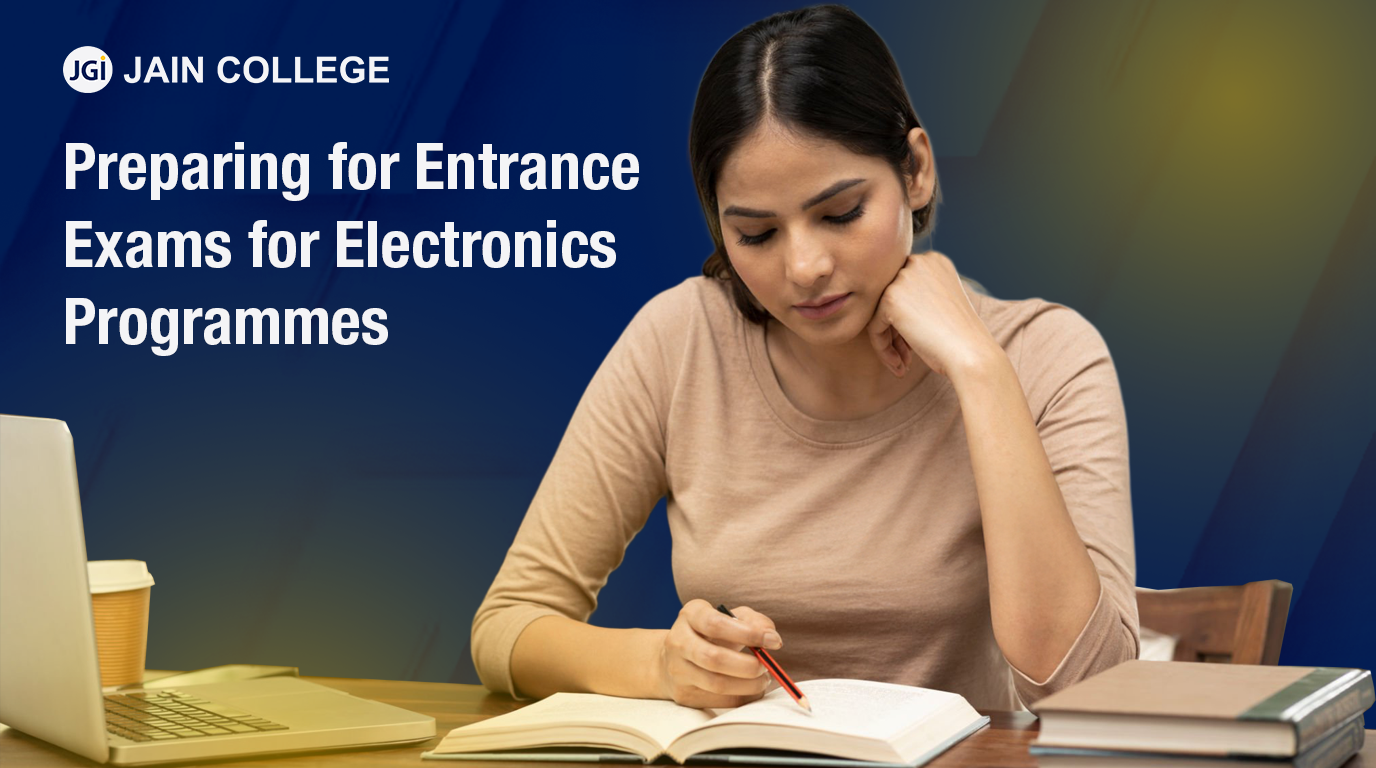
Entrance exams for electronics programmes are designed to test students' understanding of key scientific and mathematical principles: mainly Physics, Mathematics, and basic Electronics.
These entrance exams help colleges and universities identify students with the potential to succeed in highly technical and innovation-driven fields. With AI-powered tools and personalised learning apps, preparation has become smarter and more focused than ever. But it still takes human effort, strategy, and persistence to get through.
Want more tips or a custom study plan? Let’s get you started. Your journey begins now!
Electronics is a branch of Science and technology that deals with the study, innovation, and application of electronic devices and systems that use electrons to perform various functions.
Electronics is the heart of modern innovation, from smartphones and satellites to smart homes and electric vehicles. If you are passionate about gadgets, solving puzzles, and imagining futuristic solutions, this specialisation could be your calling.
But first, there’s a gateway to pass through the entrance exam.
To effectively prepare for entrance exams in Electronics, always begin by understanding the exam format, syllabus, and weightage of different topics. Create a structured study plan, prioritise core concepts, and practice extensively using past papers and mock tests. Identify and focus on weak areas, utilise study materials wisely, and maintain a healthy lifestyle.
Here is a detailed preparation strategy for the entrance exams in Electronics :
Each entrance exam has its own pattern. Whether it is JEE, KCET, COMEDK (India), EEE (UK), or others worldwide, take time to understand:
Tip: Always visit the entrance exam official website for the current syllabus, question paper pattern, and time duration, and download the previous years' question papers.
Gone are the days of one-size-fits-all study methods. Use a mix of:
Goal: Focus on mastering concepts, not just cramming answers.
Set a mock test schedule, one full-length test every weekend
Tip: Even 30 minutes of focused revision daily can do wonders over time.
Balance = Better Results
Preparing for entrance exams is not just about getting into a good college, it is about learning how to learn. The practices you build now, discipline, curiosity, strength and stability will shape your journey in electronics and beyond.
So, if you are dreaming of circuits, codes, and creating the next tech revolution, start here, start smart, and stay consistent.
Ready to spark your future in Electronics?
Start preparing smart, not hard. Use the right tools, stay focused, and believe in yourself.
All the Best!
Shape Your Future with JAIN College's Integrated Programmes!
With expert guidance from top partners like ALLEN, you can succeed in competitive exams like JEE, KCET, COMEDK, and NEET.
For further information on the entrance exams for electronics programmes, preparation tips, exam strategies and other related articles, read our blogs.
Frequently Asked Questions (FAQs)While preparing for entrance exams for Electronics programmes, you should mainly focus on Mathematics and Physics. Some entrance exams may also include Chemistry or Basic Electronics. Therefore, focus on concepts, not just formulas!
Ideally, for Electronics entrance exams, you should start preparing from your Class 11 or early in Class 12.
Not always! With today’s AI learning apps, YouTube lectures, and many online platforms, self-study can be just as powerful, if you stay disciplined.
To stay motivated during entrance exam preparations, you should:
The best ways to practice for Electronics entrance exams are:
Absolutely! The entrance exam syllabus overlaps a lot with academics. Therefore, you are already halfway prepared and do not need to go further.
To stay calm and confident on exam day, sleep well, do not panic, focus on preparation, reach the centre early and develop a positive mindset, self-care, practice relaxation techniques and read each question carefully before answering.

JAIN PU College, a part of the renowned JGI Group, is committed to empowering students with quality education.
Beyond academics, the college ensures its online content reflects the same standard of excellence. Every blog and article is meticulously vetted and proofread by subject matter experts to ensure accuracy, relevance, and clarity. From insightful educational topics to engaging discussions, JAIN PU College's content is crafted to inform, inspire, and add value to its readers, reflecting the institution's commitment to intellectual growth and innovation.
View all Blogs